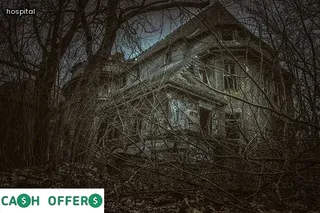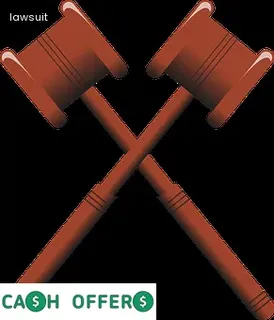Governor Hochul of New York is pushing for the end of medical debt for citizens of the state. The recently proposed regulations will bring New Yorkers greater financial protection and security, setting limits on medical debt collection practices.
The new rules are set to protect consumers from aggressive tactics used by debt collectors and prohibit them from reporting unpaid medical bills to credit bureaus. Additionally, they limit how long a debt can be pursued before being written off, giving people more time to settle their debts.
In accordance with the proposed regulations, all creditors must also provide a written notice to consumers before attempting to collect any outstanding medical bills. This measure aims to give individuals the chance to dispute any incorrect charges that may appear on their bill.
Furthermore, Governor Hochul is aiming at removing barriers that prevent people from accessing health care services due to fear of accumulating high levels of medical debt in New York State.

In New York, medical debt collection practices are increasingly unfairly targeting individuals. Many patients are receiving bills that are much higher than expected due to hidden fees and charges.
Furthermore, the cost of health care services is often inflated by insurance companies who negotiate discounted rates with healthcare providers. As a result, many patients find themselves unable to pay their medical bills and can end up in debt.
This can be particularly damaging for those who already struggle financially, as even small amounts of medical debt can quickly spiral out of control. This unfair billing practice is further compounded by the fact that many hospitals employ aggressive collection tactics that leave people feeling overwhelmed and powerless.
To protect New Yorkers from these unfair practices, new rules have been put in place to provide better protection for those struggling with medical debt.
In New York, there is a way to protect your home from medical debt. New rules for medical debt collection have been put in place to help individuals and families facing financial hardship due to medical bills.
If you are facing mounting medical debt, taking action now can help keep your home safe from being taken away or sold off to cover the costs of your medical bills. You can start by understanding the new rules and regulations regarding medical debt collection in the state of New York and finding out what options may be available for you.
Educate yourself about your rights as a consumer and investigate how you may be able to negotiate with creditors or pursue settlement options that could reduce the amount of money owed. Additionally, if possible, seek out community resources that provide free legal advice on debt relief so that you can get the help needed to take control of your debt situation.
Taking steps now can lead to greater security in the future, helping individuals and families #EndMedicalDebt in New York.

The health system in New York is becoming increasingly fairer for those who are struggling with medical debt. With the introduction of new rules for medical debt collection, individuals and families have more protection when it comes to paying off their medical bills.
The new regulations require creditors to be transparent about their policies and procedures, as well as allow more time for individuals to make payments before initiating legal action. Furthermore, creditors are not able to contact employers or family members regarding outstanding payments.
These measures ensure that people can get the help they need without fear of repercussions from creditors. Additionally, the new rules also provide an avenue for consumers to dispute inaccurate information on their credit report related to medical debt.
By taking these steps, New York is demonstrating its commitment to ensuring a fairer health system for all its residents.
Medical debt collection is a serious issue for many people living in New York. Luckily, the state has recently enacted new rules that help consumers protect their homes from medical debt collectors.
It’s important to understand your rights and responsibilities when it comes to medical debt collection, so you can take steps to safeguard yourself and your home. First, it's essential to know that medical debt is considered a “non-priority lien” in New York and cannot be used as a basis for foreclosure in most cases.
Additionally, if you are being sued on the basis of unpaid medical bills, the court must set up an installment payment plan that can be paid off over time based on your financial ability. Furthermore, any agreement with a debt collector must be in writing and should include details about the nature of the debt, payment schedule, and interest rate (if applicable).
Finally, consumers have certain protections under New York law when it comes to medical debt collection; for example, creditors must wait six months before filing suit on unpaid bills. Knowing these rules can help you confidently protect yourself from medical debt collection activity in New York.

If you are looking for more information about how the new rules for medical debt collection in New York protect your home from medical debt, you may want to contact the Governor's press office. To do this, you will need to find out the relevant phone number or email address.
You can look online or call your local government offices to get the right contact information. Additionally, many government websites have a form where you can ask questions of their staff which can help provide further clarification on the new regulations.
It is important to be aware of all of your options when it comes to contacting the Governor's press office and getting more information about protecting your home from medical debt in New York.
The Governor's press office has put in place new measures to ensure that New Yorkers are protected from medical debt collection. As part of these efforts, they have implemented the availability of translations services for those who need it.
This will enable them to better understand the new rules and regulations surrounding medical debt collection, with clear explanations provided in their native language. These translation services are accessible online and over the phone, making it easier for individuals to access the help they need.
Additionally, the Governor's press office is providing support and guidance through dedicated staff members who can provide answers to questions and assist with any concerns that may arise. Through these efforts, New Yorkers can be assured that their rights will be protected when it comes to medical debt collection.

New York has recently enacted new laws to protect its citizens from financial hardship caused by medical debt. Medical debt collection in New York is now subject to stricter regulations in order to prevent abusive practices.
These rules limit the amount of time creditors can pursue unpaid medical bills and restrict the ways they can attempt to collect payments. Creditors are no longer allowed to garnish wages or seize assets for unpaid medical bills, and the statute of limitations for collecting on medical debt has been reduced from six years to three years.
In addition, these new laws set limits on how much interest creditors can charge, making it easier for those who are already struggling with medical debt to manage their finances. Furthermore, creditors must provide clear information about what services are covered by insurance before billing patients directly.
This will help consumers make informed decisions about their health care and protect them from unexpected costs. The goal of these new regulations is to ensure that New Yorkers receive fair treatment when dealing with medical debt collectors and don’t face excessive financial hardship as a result of their health care expenses.
The new legislation in New York is designed to protect individuals and families from the burden of medical debt. The law requires that creditors collect medical debt in a fair, transparent manner by following specific guidelines.
Creditors must provide written notification to consumers before pursuing collection efforts, and are prohibited from reporting any medical debt to credit bureaus until at least 180 days after the bill is initially incurred. Additionally, creditors may not pursue legal action against consumers for unpaid medical debt unless it has been delinquent for more than five months.
Furthermore, once a consumer has entered into an arrangement with a creditor for paying off the medical debt, creditors must refrain from taking further legal action or engaging in any type of collection practices. These regulations are meant to ensure that consumers are able to pay off their medical debt over time without facing legal repercussions or being subjected to aggressive collection tactics.
Understanding this legislation is key in order to protect yourself and your family from the financial burden of medical debt collection in New York.

Medical debt is an increasingly common problem for New Yorkers, with the rising cost of medical care and the prevalence of expensive procedures, treatments, and medications. This problem disproportionately affects those in low-income communities and can have devastating consequences if left unchecked.
Medical debt can lead to economic hardship due to lost wages from missed work as a result of illness or injury, and it can also cause significant stress and psychological distress. In addition, medical debt can further exacerbate existing financial problems by reducing access to credit, increasing interest rates on credit cards, and impacting one’s ability to secure a loan.
While collecting medical debt is necessary for healthcare providers to remain financially viable, New York recently passed rules that place greater restrictions on how it is collected. These regulations are meant to protect vulnerable consumers from harassment by creditors while still allowing healthcare providers to get the money they are owed.
By implementing these new measures, New York hopes to protect residents from the negative impacts of medical debt while still ensuring a healthy financial future for both healthcare providers and patients alike.
New York is making strides to help protect its citizens from the burden of medical debt. To provide resources and support for those struggling with medical debt in NY, new rules for medical debt collection are being implemented.
These include allowing consumers more time to make payment arrangements, preventing collection agencies from using deceptive tactics, and protecting consumers from inaccurate information on their credit reports. In addition, health care providers must be transparent about costs upfront so that patients can make informed financial decisions.
Furthermore, those who are unable to pay their medical bills have access to financial assistance programs like Medicaid and Medicare and other government programs designed to reduce the burden of medical debt. Legal aid organizations across New York also provide free or low-cost legal services to those facing overwhelming medical debt.
Finally, there are a variety of nonprofit organizations that offer support and assistance to help individuals manage their medical debt. From free counseling and education programs to grants and loan forgiveness options, these resources provide invaluable support for those struggling with the burden of medical debt in New York.

New York has recently adopted new rules to protect individuals from unfair medical debt collection practices. With the increasing cost of healthcare and medical bills, the new regulations provide important protections for consumers.
The new rules limit when and how debt collectors can contact people regarding unpaid medical bills. Additionally, the rules also provide information on how to dispute any inaccuracies in reported medical debts.
They also require debt collectors to inform individuals of their rights as a consumer and provide clear instructions on how to proceed with payment arrangements if necessary. These important changes help ensure that debt collectors do not use aggressive tactics or take advantage of those already struggling financially due to expensive medical treatments.
Failing to pay your medical bills can be a risky proposition, especially in New York where new rules are in place for medical debt collection. Not only can unpaid medical bills damage your credit score, but they can also lead to aggressive debt collection practices, such as wage garnishment or bank account levies.
As a result, it is important to understand the risks associated with not paying your medical bills and how you can protect yourself from these consequences. In New York, there are now many steps that healthcare providers must take before they pursue legal action against those who have outstanding medical debts.
For instance, they must provide written notice of the debt along with detailed information about the amount owed and how it was incurred. Additionally, in some cases, even if a bill has been sent to collections, you may still be able to work out payment arrangements with the original creditor.
By understanding the risks associated with unpaid medical bills and knowing what steps need to be taken in order to protect yourself from them, you can make sure that your finances stay safe and secure.
If you don't pay medical bills in New York, your debt could be sent to a collection agency. This means that you may be harassed with phone calls and letters demanding payment.
Your credit score could also suffer if the collection agency reports the unpaid bill to one of the three major credit bureaus. If your debt is not paid off, the collection agency could take legal action against you, including sending a court summons or garnishing wages from your paycheck.
In severe cases, your bank accounts may even be frozen in an effort to collect on the outstanding debt. Fortunately, New York has recently implemented new rules for medical debt collection that can help protect consumers from these types of extreme measures.

Yes, medical bills can go to collections in New York State. Under the new rules set forth by the Department of Financial Services, hospitals and other medical service providers must wait at least 180 days before referring unpaid medical debt to collections.
This is designed to help protect New Yorkers from financial hardship due to medical expenses. During this waiting period, medical providers are expected to work with patients on payment plans or other forms of relief.
Additionally, any unpaid debt beyond 180 days must be reported accurately and transparently to credit rating agencies. These new regulations provide an extra layer of protection for New Yorkers struggling with medical debt and ensure that they have adequate time to seek out payment options before their debt is sent to collections.
In New York City, the statute of limitations for medical debt collection is six years. This means that creditors who are attempting to collect on medical debt must begin their collections process within this window of time in order to have any legal rights over the debt.
If a creditor attempts to recover a medical debt after this period has expired, they will not be able to pursue it or take any legal action against the debtor. The statute of limitations for medical debts in NYC applies to all types of medical services, including hospital bills, doctor's office visits, and long-term care costs.
It is important to note that while the statute of limitations protects consumers from some forms of medical debt collection, there are still other measures that can be taken by creditors in an attempt to collect these debts. Consumers should be aware that the statue of limitations does not guarantee protection from aggressive or abusive practices by collection agencies.
When it comes to medical debt in New York, the new rules regarding medical debt collection may provide you with some protection when it comes to your spouse’s debt. First and foremost, you should know that unless you are a cosigner on any of your spouse’s accounts, you are generally not legally responsible for their individual debts.
This means that if your spouse owes money for medical bills, creditors cannot come after you for payment. However, if your name is on any of the accounts, then you will be legally responsible for paying off any balances owed.
It is also important to know that these new rules do not apply to married couples who file joint tax returns. In this case, both spouses would be liable for any debts incurred during the marriage regardless of whose name is on the account.
The best way to protect yourself from being held responsible for your spouse’s medical debt in New York is to make sure that all accounts are kept separate and that no joint agreements or cosigners are made between spouses.